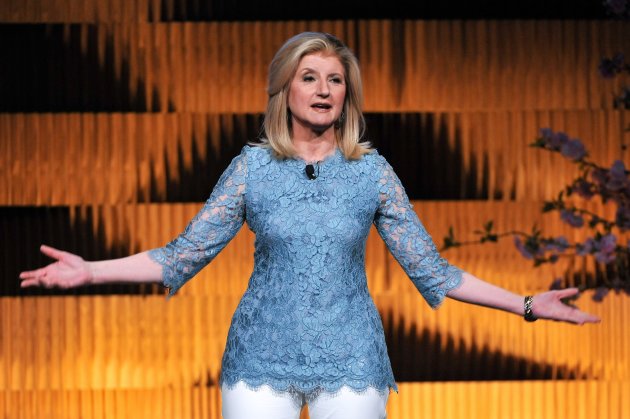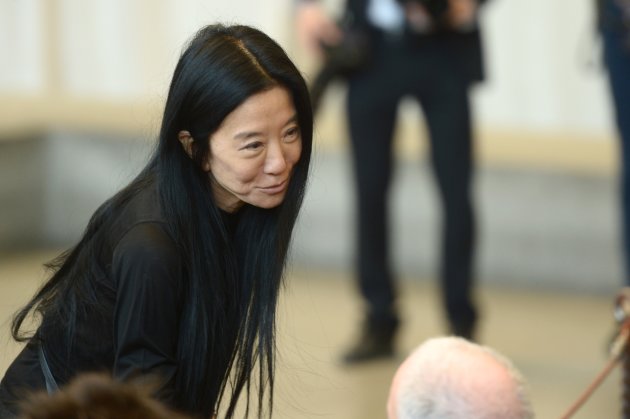Morning routines are important — but bedtime rituals can have a serious impact on your success.
That’s because the very last thing you do before bed affects your mood and energy level the following
day, since it often determines how well and how much you sleep.
day, since it often determines how well and how much you sleep.
Knowing that, we decided to find out how the most successful spend their nights before surrendering
to sleep.
to sleep.
Turns out some — like President Obama and writer Michael Lewis — are night owls, preferring to work
while the rest of the world sleeps; while others —like Arianna Huffington and Sheryl Sandberg — know
how important sleep is, and force themselves to cool down.
while the rest of the world sleeps; while others —like Arianna Huffington and Sheryl Sandberg — know
how important sleep is, and force themselves to cool down.
President Barack Obama is a "night owl" and likes to work late.
Unlike Obama's predecessor George W. Bush, who prefers to rise in the early hours, the current president
stays up late, reports Carrie Budoff Brown at Politco. He is said to hold conference calls with senior staff
as late as 11 p.m. and reads or writes before heading to bed.
In a 2011 interview with Newsweek, Obama calls himself a "night owl" and describes his typical evening:
"Have dinner with the family, hang out with the kids, and put them to bed about 8:30 p.m. And then I'll
probably read briefing papers or do paperwork or write stuff until about 11:30 p.m., and then I usually
have about a half hour to read before I go to bed ... about midnight, 12:30 a.m. — sometimes a little later."
Obama has also said that if he's home late at night, he'll try to catch "The Daily Show." "I think Jon
Stewart's brilliant," Obama tells Rolling Stone.
Inventor Benjamin Franklin asked himself the same self-improvement question every night.
In his autobiography, Franklin outlined a schedule that would lead him to "moral perfection."
In this ideal schedule, Franklin asked himself the same self-improvement question every night:
"What good have I done today?"
He described his other rituals before bed as "put things in their places, supper, music or diversion
or conversation, and examination of the day."
Franklin tracked his progress on self-improvement daily.
Facebook COO Sheryl Sandberg turns off her phone at night.
Sandberg might work for a tech company, but she knows when to unplug.
Sandberg tells Jefferson Graham at USAToday that it's "painful," but she turns her phone off at
night so that she "won't get woken up."
"I check my e-mail the first thing in the morning, and the last thing at night," says Sandberg.
Winston Churchill had an evening ritual that included a short nap, bath, and drinks
well past midnight.
The British prime minister kept to a similar daily routine no matter what happened.
In the book "Daily Rituals: How Artists Work," author Mason Currey recorded Churchill's schedule:
Around 5 p.m., the prime minister would drink a weak whisky and soda before taking a nap
for an hour and a half. Churchill said this siesta, or short nap, allowed him to work for
1.5 days every 24 hours. When he woke, he bathed and got ready for dinner.
At 8 p.m., Churchill would eat dinner, which was often followed by drinks and cigars well
past midnight.
Due to his irregular sleep schedule, Churchill was said to hold War Cabinet meetings in his bath.
Stephen King's nightly routine includes washing his hands and making sure all the
pillows face a certain way.
"It’s not any different than a bedtime routine," says King as recorded in Lisa Rogak's book
"Haunted Heart: The Life and Times of Stephen King."
"I brush my teeth, I wash my hands. Why would anybody wash their hands before they go to bed?
I don’t know. And the pillows are supposed to be pointed a certain way. The open side of the
pillowcase is supposed to be pointed in toward the other side of the bed. I don’t know why."
Arianna Huffington only reads "real books" before bed.
Sleep advocate Huffington recommends banning iPads, Kindles, laptops, and any other
electronics from the bedroom to unwind.
Instead, she likes to read the old-fashioned way, "real books."
Michael Lewis prefers to write between the hours of 7 p.m. and 4 a.m.
Author Robert Boynton asked Lewis about his ideal writing routine, as recorded in the book
"The New New Journalism":
"Left to my own devices, with no family, I'd start writing at 7 p.m. and stop at 4 a.m.," says
Lewis. "That is the way I used to write. I liked to get ahead of everybody. I'd think to myself,
'I'm starting tomorrow's workday, tonight!' Late nights are wonderfully tranquil. No phone
calls, no interruptions. I like the feeling of knowing that nobody is trying to reach me."
Former Googler Keval Desai works at night, so he can concentrate.
Desai, a former Google product director and current partner at InterWest Partners, says
that staying up is a habit of his. Desai tells Lydia Dishman at Fast Company that he likes
to pick one project per night and doesn't go to bed until the project is done.
"During the day most of my time is spent in meetings with entrepreneurs, and the only time
I can find alone to do work that requires some concentration is when the rest of the household
is asleep," he says.
Kate White, former Cosmo editor-in-chief, likes to write while standing up in the kitchen.
As a magazine editor, White preferred to work on her fiction writing in the early morning
hours and switch to magazine editing and blogging at night.
"My craziest trick is that I regularly do my work standing up at a rolling butcher block
counter in my kitchen. If I were to work sitting down, I’d fall asleep," White told
Dishman at Fast Company. "I know it sounds awful, but I think of it as if I’m tending
bar in the evening — a bar of ideas. And I always keep the kitchen TV on so it doesn’t
seem too lonely. I drink several espressos at night, which really helps."
Bill Gates reads for an hour before bed, no matter what time he gets home.
The Microsoft billionaire told the Seattle Times: "I read an hour almost every night.
It's part of falling asleep."
He enjoys "deeply informative and beautifully written" books (in June he released a
list of six books he recommends) and his reading topics range from healthcare to climate
change to business and politics.
Gates says he considers himself a very fast reader, despite never taking a speed-reading course.
Vera Wang uses this "peaceful" time to look over materials her staffers send her.
"My bedroom is my sanctuary," the fashion designer told Fortune in 2006. "It's like a refuge,
and it's where I do a fair amount of designing — at least conceptually if not literally."
She said staffers send her stuff at home, "and I always read it at night — the only time when
seven people aren't coming to me at once," Fortune reported.
Buffer CEO Joel Gascoigne walks every evening right before bed.
Gascoigne takes a 20-minute walk every evening to allow total disengagement from his work
before turning off the lights.
"This is a wind down period, and allows me to evaluate the day’s work, think about the greater
challenges, gradually stop thinking about work, and reach a state of tiredness," he writes in a blog post.
Kenneth Chenault, CEO of American Express, writes down three things he wants to
accomplish the next day.
Before retiring for the night, Chenault says he likes to write down the top three things he
wants to accomplish the next day. This helps him prioritize first thing the next morning.





















No comments :
Post a Comment